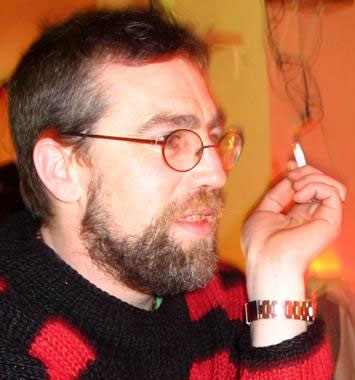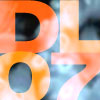• 22 h • 10 pm
an evening with aE3  Again aE3 from Nantes will be our host for a very special evening. Next to his personal work he will present a fresh collection from fellow directors, including Flotser from Belgium. Nearly all works presented at this enjoyable night will be screened in world premiere.
Again aE3 from Nantes will be our host for a very special evening. Next to his personal work he will present a fresh collection from fellow directors, including Flotser from Belgium. Nearly all works presented at this enjoyable night will be screened in world premiere.
Erneut wird aE3, Multimediakünstler aus Nantes, einen ganz speziellen Abend gestalten. Neben eigenen Arbeiten werden Werke befreundeter Regisseure, u.a. Flotser aus Belgien, zur Aufführung gelangen. Fast alle Filme werden als Weltpremieren zu sehen sein.
• aE3 FR/GB Facelines 2 min 25 s, DV, 2006
• aE3 FR/GB Residues After Sleep 6 min 8 s, DV, 2007
• aE3 FR/GB Excavation on a Battlefield 50 s, DV, 2007
• aE3 FR/GB The World's Pain 1 min 24 s, DV, 2007
• aE3 FR/GB Never Anything 41 s, DV, 2007
• aE3 FR/GB reVac (vacarme II) 11 min, DV, 2007
• Flotser BE The Fish and the Ring 12 min, DV, 2007
Afterwards / Im Anschluss
• Carlos Lapenas ES Cuatro Horas En Chatila (Four Hours In Shatila)
23 min, HD, 2006
The Sabra and Shatila massacre (or Sabra and Chatila massacre; Arabic: صبرا وشاتيلا) was carried out in September 1982 by Lebanese Maronite Christian militias against Palestinian refugee camps. The Maronite forces stood under the direct command of Elie Hobeika, who would later become a longtime Lebanese parliament member and in the 1990s also a cabinet minister. The number of victims of the massacre is estimated at 700-3500.
The camps were surrounded by Israeli Defence Forces throughout the incident. The degree to which the Israeli military was involved in the incident is a matter of controversy .
In September 1982 Jean Genet was in Beirut when the massacres took place in the Palestinian camps of Sabra and Shatila. In response, Genet published "Quatre heures à Chatila" (Four Hours in Shatila), an account of his visit to Shatila after the massacres on which this film is based.
1982 kam es in Beirut im Lager Chatila zu einem Massaker von der Phalange-Miliz unter den Palästinensern. Der damalige israelische General Ariel Scharon hatte den phalangalistischen Truppen die Durchsuchung und Säuberung der Lager genehmigt.
Jean Genet, zu jener Zeit in Beirut, machte sich zwei Tage spater vor Ort ein Bild davon. Drei Tage später reiste er zurück nach Paris und arbeitete den ganzen Oktober an dem Essay „Quartre heures à Chatila“ („Vier Stunden in Chatila“) auf dem dieser Film basiert.









0 Comments:
Post a Comment